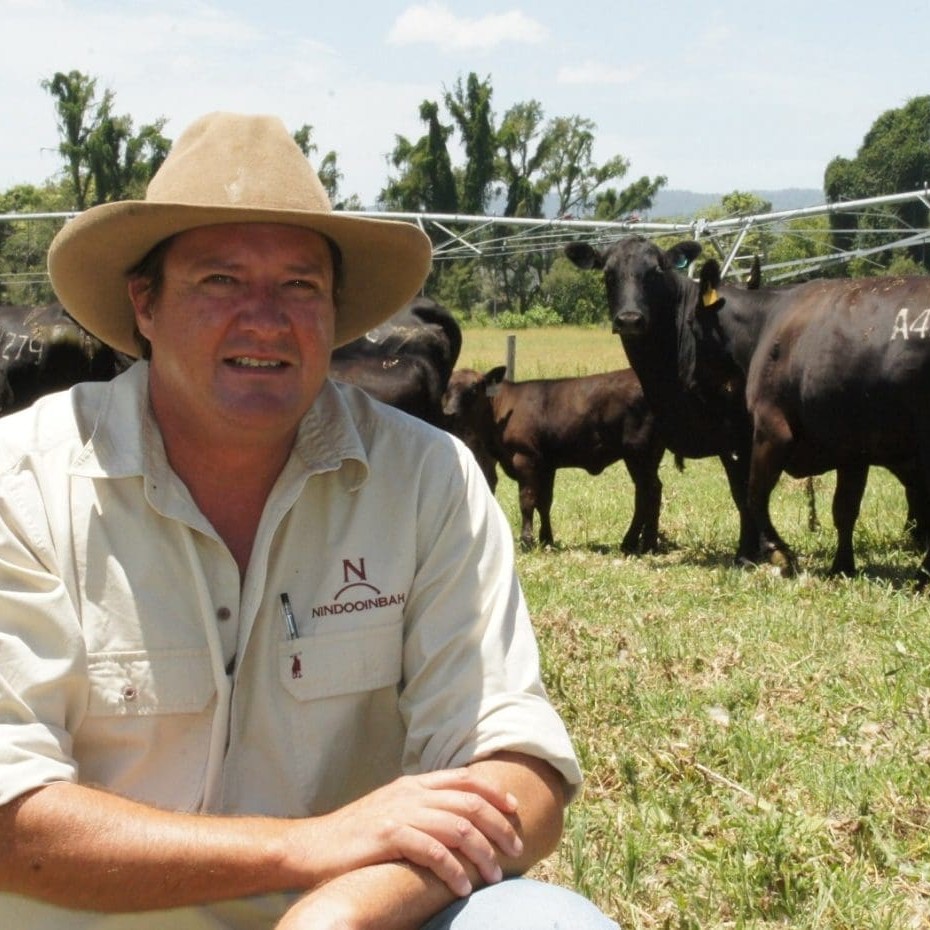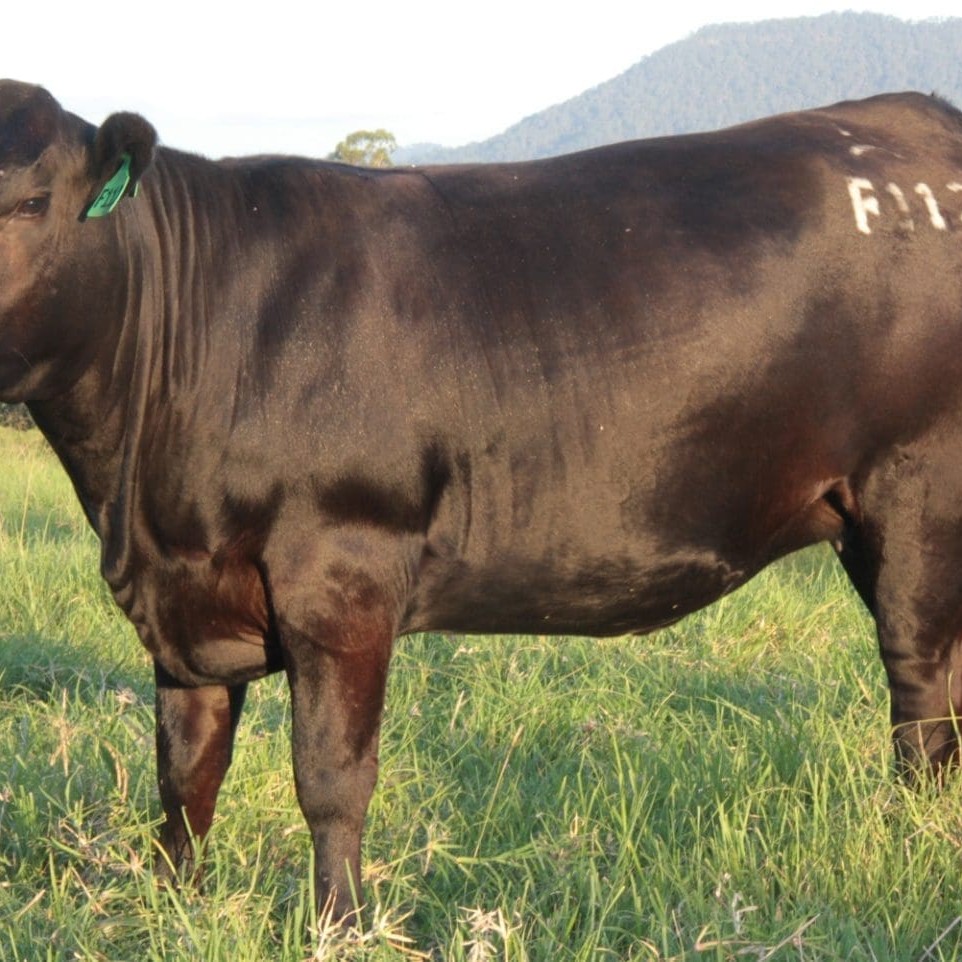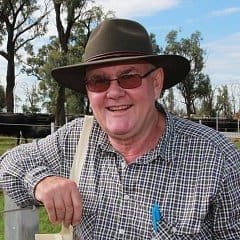 Commercial cattlemen in Northern Australia looking to elevate meat quality and fertility traits often have reservations over the use of Angus herd bulls because of their limited ability to handle the conditions.
Commercial cattlemen in Northern Australia looking to elevate meat quality and fertility traits often have reservations over the use of Angus herd bulls because of their limited ability to handle the conditions.
But the emergence of a new tropically-adapted Angus-based composite promises to greatly expand the footprint of Angus-derived genetics across large parts of northern Australia.
The opportunity coincides with a renewed emphasis on meat quality traits across the Australian beef industry, with programs like MSA now grading close to 1.5 million bodies annually, and attracting significant market premiums for compliance.
Momentum is now growing in the development and adoption of a tropically-adapted Angus-based composite called UltraBlack, designed for use as herd bulls in extensive areas throughout Queensland and northern Australia.
The first generation UltraBlack cattle being bred at Nindooinbah, near Beaudesert, are based on US Brangus bulls carrying three-eighths Indicus content, used over high quality Angus females to deliver a calf carrying three-sixteenths (18.75 percent) Indicus content, and 13/16 Angus.
Over time, as the composite stabilises and the population grows, breeding will shift more to UltraBlack x UltraBlack matings. The first 450 of these embryos have already been implanted in recipient females.
The small Indicus infusion in UltraBlacks delivers an animal with a slick coat (see image below, or enlarge at bottom of page), elevated environmental adaptation to handle the north’s hot conditions and variable nutrition, and a little more leg under them to get across the country. They also offer the potential to significantly improve fertility in those herds where the F1 heifer progeny are retained.
Based on extensive carcase scanning results, carcase and meat quality attributes are virtually identical to a straightbred Angus animal.
 While small isolated pockets of UltraBlack bulls have already appeared in a few Angus sale catalogues in Australia over the past year or two, one seedstock breeder in Southeast Queensland has embraced the composite in a much more significant way.
While small isolated pockets of UltraBlack bulls have already appeared in a few Angus sale catalogues in Australia over the past year or two, one seedstock breeder in Southeast Queensland has embraced the composite in a much more significant way.
Embarking on Australia’s first large-scale UltraBlack breeding program is Euan Murdoch’s Nindooinbah enterprise, one of Australia’s largest and best developed artificial breeding centres. This season alone, Nindooinbah is carrying out an ET program across 1500 recip females, and is producing a similar number of AI calves, across a number of breeds.
The scale of the enterprise means it can greatly accelerate the genetic progress being made, and generate large numbers of elite UltraBlack calves in a relatively short timeframe.
The genetic building-blocks for the program started with the purchase of 650 high-performance stud Angus cows, mostly A and B drop, bought from Lawsons Angus, one of Australia’s pre-eminent Angus breeders.
These heavily performance-recorded females provide an excellent maternal background, and include an elite group of about 50 donor cows used in a large-scale ET program.
The Angus females are being mated or flushed using semen from trait-leading US Brangus sires mainly from the famous Brinks Brangus or Camp Cooley programs in Texas. These sires have been selected with a strong emphasis for carcase yield, marbling and fertility.
The first 220 selected heifer progeny from these matings will be offered at Nindooinbah’s Inaugural Female Sale, scheduled to take place on-property on March 23.
Their male siblings will feature in the Inaugural Nindooinbah Bull Sale (UltraBlack, Angus and Brangus) set down for October 5.
The UltraBlack heifer portion being prepared for sale now will be around 18 months at sale time, PTIC to Angus, UltraBlack and Brangus bulls. All will be registered with Angus Breedplan, on the society’s Multi-Breed Register, with a full suite of EBVs for production and meat quality traits – as would typically be seen in an extensively measured Angus seedstock herd.
The female sale will also include about 120 PTIC stud Lawson Angus blood Angus females, ranging in age from four to nine years, including elite donor cows in the top five percent of EBVs for the Angus breed.
300 bulls on Lake Nash
One of the first large-scale commercial cattlemen to zone-in on the UltraBlack as a herd bull option is Peter Hughes, whose Georgina Pastoral Company operates extensive breeding and growing properties on the Barkly Tabeland, Tambo district and Channel Country in western Queensland.
Nindooinbah has already contract-bred 300 UltraBlack herd bulls for use over Georgina Pastoral’s extensive 50-75pc Indicus crossbred females on 8500sq km Lake Nash, on the Barkly Tableland.
Nindooinbah general manager Nick Cameron said the UltraBlack composite would appeal to commercial cattlemen across large areas of Queensland and northern Australia.
“We see them filling an important role both in southern Queensland and in those zones further north where Angus bulls struggle. But equally, in the more extreme breeding areas of the far north where nutrition is poor and conditions much tougher, Brangus bulls will still play a role,” he said.
Role to play, says geneticist
 Well-known beef genetics and breeding consultant Don Nicol has worked closely with Nindooinbah in the development of the first UltraBlack composites.
Well-known beef genetics and breeding consultant Don Nicol has worked closely with Nindooinbah in the development of the first UltraBlack composites.
“In my opinion the UltraBlack program at Nindooinbah provides the best genetics that the Angus and Brangus breeds have to offer,” Mr Nicol said.
“The 18 percent Brahman blood makes for a sleeker-coated animal conferring heat resistance such that the animal can survive and breed in a broader range of climatic zones."
"The phenotype of the animal shows clean sheaths in bulls; hump and ears are minimal making them eligible for MSA programs; while their polled heads assist in crossbreeding programs that aim to breed the horns off cattle,” he said.
Mr Nicol said the effect of maternal hybrid vigour was evident in the females producing a high level of weaning weight relative to females joined through high fertility and mothering performance through to weaning.
“UltraBlacks are still new to Australia, but have grown in popularity in Texas and other hotter southern States of the US, where stabilised herds have been producing multi-generation UltraBlacks, inter-breeding UltraBlack bulls and cows for some time,” he said.
With their improved heat resistance relative to straightbred Angus, UltraBlack bulls had a role to play in many harsher environments, Mr Nicol said.
“Mated to high-grade Brahman cows, UltraBlack bulls will provide a strong level of hybrid vigour, improved carcase quality and a higher level of reproductive performance in the daughters combined with the ability to be adapted herd replacements.”
UltraBlack females mature early but with their 3/16 Brahman content are well-adapted to a range of extensive environments in northern Australia. Conversely the 13/16 Angus component means the widely-recognised Angus traits remain well-expressed.
“They are particularly suited to more extensive grazing areas in the non-ticky zone of Queensland and the Northern Territory where distance between waters is a factor,” Mr Nicol said.
More details about the female sale offering and UltraBlack cattle are available on the Nindooinbah website, click here.
- Nindooinbah general manager Nick Cameron will speak at the upcoming International Genetics Conference being held as a precursor to the Beef Australia 2012 event in Rockhampton in May. His topic is “Running a large-scale ET operation.” Nindooinbah will also have a stud display at Beef 2012, featuring UltraBlack, and two Brangus bull lines with different Indicus content, suited to different northern environments. All will be available for sale.



HAVE YOUR SAY